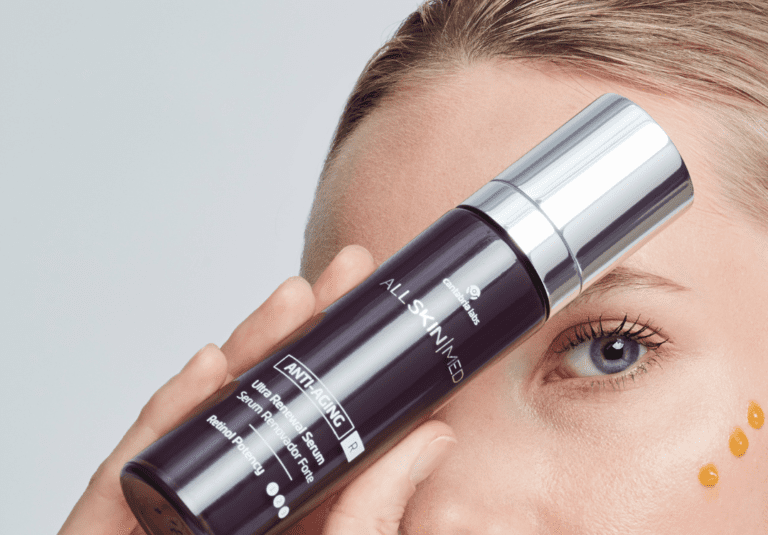Skin
How to Use Tamanu Oil for Acne Scars

Are you sick and weary of the stubborn scars left by acne that just won’t go away? You’re not by yourself. Tamanu oil is leading the way in this trend of individuals using natural therapies instead of pharmaceutical ones. However, what is exactly it, and how does it work to treat acne scars? Let’s explore and discover.
What is Tamanu Oil?
The Tamanu tree, which is indigenous to Southeast Asia and the Pacific islands, yields nuts that are used to make Tamanu oil, a natural oil. utilized in traditional medicine for generations due to its well-known therapeutic effects.
Importance of Tamanu Oil in Skincare
Tamanu oil is a great option for repairing acne scars because of its well-known capacity to stimulate the growth of new tissue. It is a mainstay of natural skincare due to its distinct makeup and numerous skin benefits.
Purpose of the Article
The goal of this post is to offer a thorough how-to for using Tamanu oil for acne scars. We can help you with everything from applicability methods to benefit comprehension.
Understanding Acne Scars
Types of Acne Scars
There are three types of acne scars: post-inflammatory hyperpigmentation (dark patches), hypertrophic scars (raised), and atrophic scars (depressed). Different techniques for treatment are needed for each category.
Causes of Acne Scars
The inflammation of acne lesions leads to the formation of acne scars. Scars grow as the body tries to heal the damage caused by the swollen acne pore, which destroys the follicular wall.
Common Treatments for Acne Scars
Microneedling, laser therapy, and chemical peels are examples of conventional therapies. Although these techniques work well, they can be costly and have unintended consequences, which is why many people look for natural substitutes like tamanu oil.
Tamanu Oil: An Overview
Origin of Tamanu Oil
The nuts of the Tamanu tree (Calophyllum inophyllum) are the source of Tamanu oil. This tree has been used medicinally for a very long time and grows well in tropical settings.
Composition of Tamanu Oil
Tamanu oil is a rich source of fatty acids, antioxidants, and anti-inflammatory components, all of which help to repair and nourish the skin.
Benefits of Tamanu Oil for Skin
Tamanu oil is well known for its capacity to encourage healthy skin renewal, lessen inflammation, and heal wounds. Its healing qualities make it especially useful in treating acne scars.

Why Tamanu Oil Works for Acne Scars
Anti-inflammatory Properties
The anti-inflammatory properties of tamanu oil contribute to a more even skin tone by minimizing the redness and swelling that come with acne scars.
Regenerative Capabilities
By encouraging the growth of new skin cells, the oil helps injured tissue repair and reduces the visibility of scars.
Antioxidant Effects
Tamanu oil’s antioxidants shield the skin from free radical damage, which exacerbates aging and scars.
How to Choose the Right Tamanu Oil
Purity and Quality
To guarantee the greatest benefits, always choose 100% pure Tamanu oil without any additional additives or preservatives.
Organic vs. Non-organic
Because it doesn’t include artificial fertilizers or pesticides, organic tamanu oil is a safer and better option.
Reading Labels and Certifications
Seek for products with clear labels regarding their purity and source and that are certified organic.
Preparing Your Skin for Tamanu Oil Application
Cleansing Your Skin
Start with a clean face. Use a gentle cleanser to remove dirt, oil, and makeup.
Exfoliation Tips
Exfoliate once or twice a week to remove dead skin cells, allowing Tamanu oil to penetrate more effectively.
Patch Testing for Allergies
Do a patch test on a small section of your skin to check for allergic responses before using Tamanu oil on your face.
How to Apply Tamanu Oil on Acne Scars
Direct Application Method
Apply a few drops of Tamanu oil directly to the acne scars and gently massage it into the skin.
Mixing with Carrier Oils
For sensitive skin, mix Tamanu oil with a carrier oil like jojoba or coconut oil.
Using Tamanu Oil in DIY Masks
Combine Tamanu oil with ingredients like honey or yogurt to create a nourishing mask.
Frequency of Use
Daily Routine
Apply tamanu oil once or twice a day for optimal effects when including it into your regular skincare regimen.
Weekly Treatments
Use Tamanu oil in masks or treatments once a week to boost its effectiveness.
Long-term Use and Expectations
For noticeable improvements in acne scars, consistent application over a few weeks to months is required.
Additional Tips for Using Tamanu Oil
Combining with Other Natural Remedies
Pair Tamanu oil with other natural remedies like aloe vera or rosehip oil for enhanced benefits.
Avoiding Sun Exposure Post-application
Tamanu oil might increase your skin’s sensitivity to the sun, therefore after applying, wear sunscreen or stay out of the sun.
Hydration and Diet Considerations
Maintain a healthy diet and stay hydrated to support overall skin health.
Potential Side Effects and Precautions
Common Side Effects
Some people may experience minor irritation or allergic reactions. Always do a patch test first.
Who Should Avoid Tamanu Oil?
Individuals with nut allergies should avoid Tamanu oil as it is derived from nuts.
Consulting a Dermatologist
Before beginning any new treatment, see a dermatologist if you have extremely severe acne scars or sensitive skin.
Real-life Success Stories
Testimonials
Many users have reported significant improvements in their acne scars after using Tamanu oil.
Before and After Results
Images of the before and after can be inspiring. Look for visual evidence of the efficacy of Tamanu oil in internet forums and reviews.
Comparing Tamanu Oil with Other Natural Remedies
Tamanu Oil vs. Rosehip Oil
Both oils are great for scars, but Tamanu oil is often more effective for deep, indented scars.
Tamanu Oil vs. Tea Tree Oil
Tea tree oil is excellent for active acne, while Tamanu oil is better for healing scars.
Tamanu Oil vs. Aloe Vera
Aloe vera soothes and hydrates, making it a good complementary treatment with Tamanu oil.
Final Thoughts
Recall that consistency is essential. Tamanu oil can give you more clear, smooth skin with continued use.
FAQs
1. Can Tamanu Oil Make Scars Worse?
No, tamanu oil is safe in general and lessens the visibility of scars. But always start with a patch test.
2. How Long Before You See Results?
Usually, it takes a few weeks to many months of regular use to observe any real benefits.
3. Can Tamanu Oil Be Used with Other Skincare Products?
It is possible to mix tamanu oil with other skincare products. Just be sure there are no additives in them that could react badly with the oil.
4. Is Tamanu Oil Safe for Sensitive Skin?
Although tamanu oil is generally harmless, people with sensitive skin should patch test and dilute it with carrier oil.
5. Where Can I Buy High-quality Tamanu Oil?
Reputable internet merchants, health food stores, and specialty skincare shops sell high-quality Tamanu oil.
Skin
Superior Manicure And Pedicure Near Me
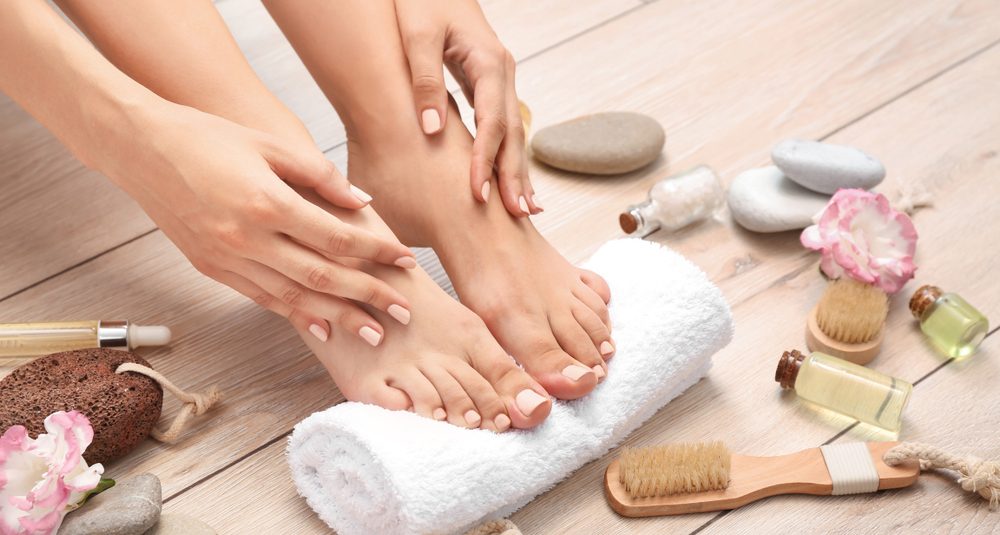
Manicure and pedicure transcend mere aesthetic indulgence—they embody self-nurturing rituals. Whether preparing for a grand event or reveling in restorative moments, locating a stellar salon nearby can amplify the experience. Why endure long commutes when impeccable nail care awaits just around the corner?
Advantages of Regular Nail Care
Enhanced Nail Vitality

Routine manicures and pedicures fortify nail health, curbing vulnerabilities like brittleness and fungal maladies. Skilled technicians meticulously trim, buff, and nourish your nails, ensuring enduring strength and vitality.
Serenity and Stress Dissolution
In a world of chaos, these treatments offer an oasis of tranquility. The gentle massages, soothing warm soaks, and serene atmosphere dissolve tension, rejuvenating both mind and spirit.
Polished Elegance
Well-groomed nails exude confidence. Whether you favor vibrant hues or understated neutrals, a freshly manicured set effortlessly enhances your overall appearance.
How to Unearth the Finest Manicure and Pedicure Near You
Leverage Digital Reviews
Platforms like Google, Yelp, and Facebook brim with insights. Prioritize feedback highlighting cleanliness, service excellence, and client satisfaction.
Rely on Personal Recommendations
Trustworthy endorsements from friends, family, or colleagues often eclipse anonymous reviews, steering you toward hidden gems.
Assess Hygiene Protocols
Tool Sterilization Practices
Opt for salons employing autoclaves or single-use tools to mitigate infection risks.
Impeccable Cleanliness
A spotless environment—be it floors, chairs, or workstations—reflects professionalism and meticulous care.
Seek Certified Technicians
Entrust your nails to seasoned, licensed professionals for a secure and exceptional experience.
Varieties of Manicures and Pedicures

Classic
This evergreen choice encompasses fundamental nail care, cuticle grooming, and a polish application of your liking.
Gel
Revered for durability, gel treatments resist chipping and retain their luster longer.
Spa Treatments
Elevate your session with exfoliation, nourishing masks, and warm towel wraps for ultimate relaxation.
French Tips
Timelessly sophisticated, this style complements any occasion with subtle elegance.
What to Anticipate During Your Appointment
Personalized Consultation
Communicate your preferences and concerns openly. A skilled technician will adapt the service to align with your unique needs.
Step-by-Step Process
From soothing soaks to the final polish, every stage is curated to leave you invigorated.
Optional Add-Ons
Enhance your experience with extras like intricate nail art, paraffin treatments, or extended massages.
Essential Attributes of a Premium Nail Salon
Welcoming Ambiance
A serene setting with calming melodies and plush seating augments the experience.
Superior Products
High-caliber polishes and creams yield visibly superior outcomes.
Affable Personnel
Courteous, attentive staff foster a hospitable environment.
Trending Nail Care Styles
Minimalist Artistry
Delicate designs such as geometric motifs or single-line embellishments are in vogue.
Vivid Shades
Bold tones—from fiery scarlets to electrifying greens—dominate current trends.
Au Naturel
Many embrace the understated allure of bare, well-maintained nails for a fresh, clean look.
Tips for Prolonging Nail Health
Post-Treatment Guidelines
Steer clear of water exposure for several hours to secure your polish.
Moisturization Essentials
Regularly hydrate your nails and cuticles using nourishing oils and creams.
Choose Safer Polishes
Opt for non-toxic formulations devoid of harmful chemicals like formaldehyde.
Comparing Affordable and Luxury Nail Salons

Affordable Options
Budget-friendly salons deliver essential services without excessive embellishments.
Upscale Experiences
High-end salons boast premium products, meticulous service, and an opulent atmosphere.
Conclusion
Your nails merit the finest care, and discovering a nearby manicure and pedicure haven is simpler than imagined. Whether your priority is economical efficiency, lavish pampering, or a harmonious blend of both, remember that prioritizing self-care is always rewarding.
FAQs
- How frequently should I schedule nail treatments?
Every 2-4 weeks, depending on nail growth and personal habits. - Are gel treatments safe?
Yes, provided a professional administers and removes them correctly. - What’s the typical cost range?
Services generally range from $20 to $80, contingent on the salon and offerings. - How can I verify a salon’s hygiene standards?
Look for sterilized tools, pristine workstations, and an overall hygienic setup. - Are manicures and pedicures suitable for men?
Absolutely! Nail care transcends gender—it’s for everyone.
Skin
Why Does My Car Smell Like Nail Polish Remover?

Were you ever hopped into your car, only to be hit by a chemical smell like nail polish remover? This isn’t just unpleasant—it’s often a warning sign that something in your car needs attention. Unusual odors can signal mechanical or safety issues, and addressing them early can save you from costly repairs.
So, why does your car smell like a nail polish remover? Let’s explore the possibilities.
Common Causes of Chemical Odors in Cars

Cars can emit various smells, each hinting at specific issues. A nail-polish-remover-like smell, often associated with acetone, is commonly linked to:
- Fuel system leaks
- HVAC contamination
- Battery problems
- Overheating mechanical components
Ignoring these can lead to safety risks and expensive repairs.
Why Your Car Smells Like Nail Polish Remover
The Chemical Behind the Odor
Acetone, a volatile organic compound (VOC), causes the smell of nail polish remover. In cars, this smell usually indicates that something is producing or leaking similar VOCs.
Common Sources of the Smell
- Fuel System Leaks
- Gasoline contains acetone-like chemicals that evaporate quickly. A leak in the fuel tank or lines can release these fumes, creating a strong chemical odor.
- HVAC System Contamination
- Mold, refrigerants, or chemical residues in the air vents can emit an acetone-like smell.
- Faulty AC components may also leak refrigerants with a chemical odor.
- Overheating Car Battery
- Overheating or damaged batteries can release fumes resembling acetone. This requires immediate attention to prevent potential failure or explosion.
- Worn-out or Overheating Clutch (Manual Transmission)
- Excessive friction from a failing clutch can produce heat and chemical-like odors.
Diagnosing the Problem
Steps to Identify the Cause
- When does the smell occur?
- On ignition, acceleration, or with the AC running?
- Are there warning lights?
- Look for battery, engine, or other system indicators.
- Are there unusual sounds?
- Clicking, hissing, or grinding sounds can provide additional clues.
DIY Inspection Tips
- Under the Hood: Look for visible leaks or swelling in components.
- Fuel System: Sniff near the fuel cap for strong odors.
- Battery: Check for swelling or corrosion.
Risks of Ignoring the Smell

Ignoring the smell isn’t just inconvenient—it can be dangerous:
- Fuel leaks: Increase fire risks.
- Battery issues: Can lead to failures or explosions.
- HVAC contamination: This may expose you to harmful chemicals.
Addressing the issue promptly ensures your safety and prevents expensive repairs.
Fixing the Problem
Professional Repairs
- Fuel System: Fixing leaks can cost $200–$500.
- HVAC System: Cleaning or repairing vents starts at $150.
- Battery Replacement: A new battery typically costs $100–$300.
Preventative Maintenance
- Follow your car’s service schedule.
- Replace air filters regularly.
- Inspect the battery for wear and corrosion.
When to Seek Immediate Help
Seek immediate help if the smell is:
- Intense.
- Accompanied by smoke or warning lights.
- Persisting despite basic maintenance.
Preventing Future Odors
Regular Maintenance
- Schedule periodic inspections.
- Replace filters and worn components.
- Clean vents to avoid the buildup of contaminants.
Proper Cleaning Practices
- Avoid chemical spills inside the car.
- Clean vents and upholstery regularly to prevent residue.
Conclusion
A nail polish remover smell in your car isn’t just an annoyance—it’s a signal that something needs attention. Whether it’s a fuel leak, battery issue, or HVAC contamination, promptly diagnosing and fixing the problem can save you from more significant trouble. Take action to ensure your car is safe and running smoothly.
FAQs
Q: What should I do if my car smells like chemicals but seems fine?
A: Inspect the car or visit a mechanic to rule out hidden issues.
Q: How can I safely inspect my car for unusual smells?
A: Turn off the engine, wear gloves, and check for visible damage or leaks.
Q: Is the smell always dangerous?
A: Not always, but it’s often a sign of a problem that needs attention.
Q: Can the smell harm my health?
A: Yes, prolonged exposure to chemical fumes can be hazardous.
Q: What’s the average cost to fix a fuel system leak?
A: Repairs typically range from $200 to $500, depending on the extent of the damage.
Skin
How to Use Global Beauty Care Retinol Skin Cream
-
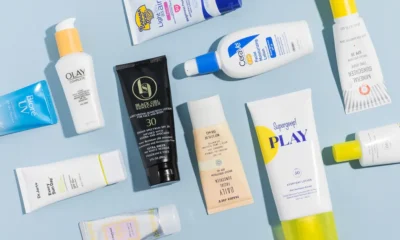
 Skin9 months ago
Skin9 months agoNatural Oil-Free Face Moisturizer Reviews & Buyers Guide
-
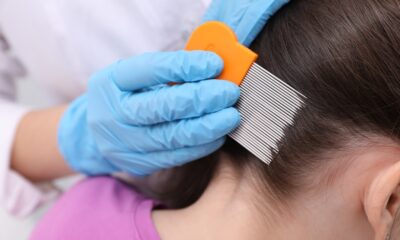
 Hair3 weeks ago
Hair3 weeks agoDoes a Flat Iron Kill Lice? Fact or Myth?
-
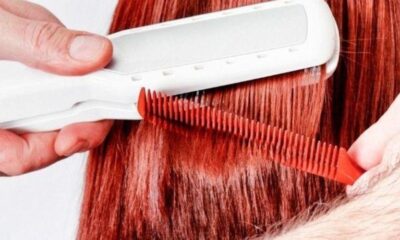
 Hair9 months ago
Hair9 months agoDoes a Flat Iron Kill Lice? Fact or Myth?
-

 Skin8 months ago
Skin8 months agoAbout Face Beauty: Tips for Enhancing Your Natural Beauty
-

 Hair9 months ago
Hair9 months agoFunction of Beauty: Personalized Hair Care for Your Unique Needs
-

 Skin8 months ago
Skin8 months agoBeautiful Nails: Tips and Tricks for Healthy and Gorgeous Nails
-
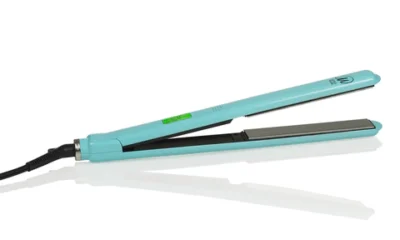
 Hair9 months ago
Hair9 months agoTitanium Flat Iron vs. Ceramic
-

 DIY Cosmetics8 months ago
DIY Cosmetics8 months agoEmpire Beauty School:


